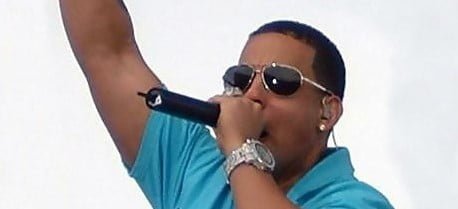Daddy Yankee, born Ramón Luis Ayala Rodríguez on February 3, 1977, in San Juan, Puerto Rico, has become a multifaceted artist with a significant impact on the world of reggaeton. From his early influences and humble beginnings in Rio Piedras to his international success, Daddy Yankee’s journey is a testament to his versatility and dedication to his craft.
Daddy Yankee’s Early Influences and Musical Beginnings:
Growing up in a family immersed in music, Daddy Yankee’s father, a salsa percussionist, and his mother’s family of musicians shaped his early exposure to diverse musical genres. Despite initially aspiring to be a baseball player, Daddy Yankee found himself drawn to improvisation and conscious messages in lyrics. His introduction to Hip-hop in Spanish, with Vico C as his idol, laid the foundation for his passion for rhyming and conscious storytelling.
At the age of 18, Daddy Yankee collaborated with DJ Playero on his first official project, “No Mercy” (1995), marking the beginning of his musical journey.
Daddy Yankee’s Rise to Fame and Exploration of Genres:
As Daddy Yankee navigated the evolving music scene, he explored various sounds, moving away from Hip Hop and rap towards reggaeton. His second solo album, “El Cangri.com” (2002), marked his emergence as a pioneer in reggaeton, gaining international recognition. This journey continued with albums like “Barrio Fino” (2004), a massive success that solidified his status as a reggaeton icon.
Musical Evolution and Social Commentary:
Daddy Yankee’s willingness to embrace new rhythms led him to experiment with hip hop, rap, and even salsa. His album “El Cartel: The Big Boss” (2007) showcased his versatility by incorporating hip hop mixes. Despite criticism for some of his lyrics focusing on topics like women, sex, cars, and easy money, Daddy Yankee defends his work, stating that his lyrics depict the daily life of Puerto Rican youth, addressing issues like criticism of the establishment, marginalization, street violence, and sex.
Beyond Music: Altruistic Initiatives and Recognition:
Daddy Yankee’s impact extends beyond music. He has been a vocal advocate for reggaeton, defending the genre against associations with crime. Additionally, he has engaged in altruistic initiatives such as the Corazón Guerrero Foundation, dedicated to prisoner reintegration. Recognized as the “King of Improvisation,” he has received numerous accolades, including the Street Jam Reggae Awards for five consecutive years.
Continued Success and Collaborations:
In his mature stage, Daddy Yankee continues to enjoy success, collaborating with renowned artists like Luis Fonsi on the global hit “Despacito.” Their collaboration received several awards, including Song of the Year at the Billboard Latino Awards 2018. Another recent hit, “Dura,” has further solidified Daddy Yankee’s place as a leading figure in the music industry.
Conclusion:
Daddy Yankee’s journey from the streets of Rio Piedras to international acclaim is a testament to his talent, adaptability, and dedication. As a pioneer in reggaeton, he continues to shape the genre and inspire a new generation of artists. His commitment to social causes and musical evolution demonstrates that Daddy Yankee is not just a music icon but a cultural force.
FAQs:
Q1: What inspired Daddy Yankee to pursue music?
A1: Growing up in a family of musicians and influenced by Hip-hop in Spanish, Daddy Yankee was drawn to improvisation and conscious messages in lyrics. His collaboration with DJ Playero at the age of 18 marked the beginning of his musical journey.
Q2: How did Daddy Yankee become a pioneer in reggaeton?
A2: Daddy Yankee’s second solo album, “El Cangri.com” (2002), played a crucial role in establishing him as a pioneer in reggaeton. His willingness to explore new rhythms and sounds contributed to the genre’s evolution.
Q3: What social issues does Daddy Yankee address in his lyrics?
A3: Daddy Yankee’s lyrics cover a range of social issues, including criticism of the establishment, marginalization, street violence, and sex. He maintains that his lyrics accurately portray the daily life of Puerto Rican youth.
Q4: Apart from music, what philanthropic initiatives is Daddy Yankee involved in?
A4: Daddy Yankee has been actively involved in altruistic initiatives, such as the Corazón Guerrero Foundation, dedicated to the reintegration of prisoners. His efforts extend beyond music, reflecting a commitment to social causes.
Q5: What are some of Daddy Yankee’s recent collaborations and successes?
A5: Daddy Yankee’s collaboration with Luis Fonsi on “Despacito” garnered multiple awards, including Song of the Year at the Billboard Latino Awards 2018. His recent hit, “Dura,” further emphasizes his continued success and influence in the music industry.






Leave a Reply